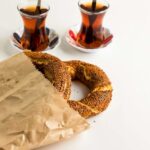Before Your Trip to Dubai
Preparing for a trip to Dubai involves more than just packing your bags. To make the most of your visit, it’s essential to be informed and well-prepared. From understanding local customs and securing necessary travel documents to planning your daily activities, a little preparation will ensure a smooth and enjoyable experience in this vibrant city. Here are some key topics and details to help you get ready for your journey to Dubai.
The Weather in Dubai
Dubai experiences a desert climate with extremely hot summers, warm winters, and minimal rainfall. Summers, from June to August, can see temperatures soar above 40°C (104°F), with intense humidity making it feel even hotter. This period is best spent indoors or in air-conditioned environments.
In the fall, from September to November, temperatures begin to drop slightly, ranging between 25°C and 35°C (77°F to 95°F). Humidity remains high in September but decreases by November, making it more comfortable for outdoor activities.
Winters, from December to February, are mild and pleasant, with temperatures ranging from 14°C to 25°C (57°F to 77°F). This is the ideal time for tourists, as the weather is perfect for exploring the city and engaging in outdoor activities. Rainfall is rare but possible, with occasional light showers.
Spring, from March to May, sees temperatures rise again, ranging from 20°C to 35°C (68°F to 95°F). Humidity starts to increase towards May, making March and April still relatively comfortable for outdoor activities before the heat of summer sets in. Understanding Dubai’s weather patterns will help you plan your trip and pack appropriately.
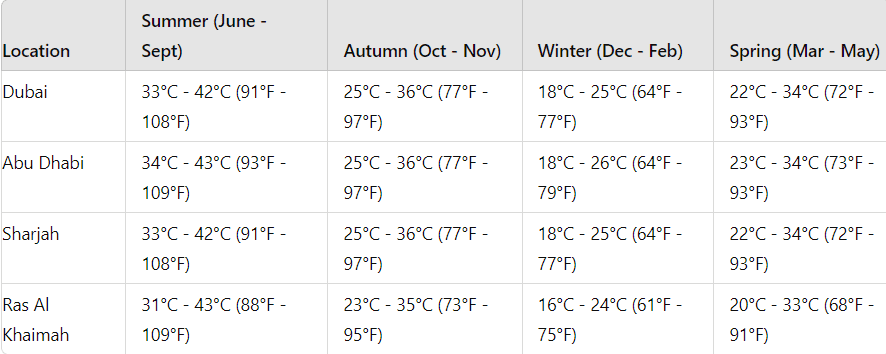
How to Dress in Dubai – Seasonal Considerations
Dubai’s climate varies significantly throughout the year, necessitating appropriate attire for each season. Here’s a guide on how to dress in Dubai considering the seasonal weather:
Summer
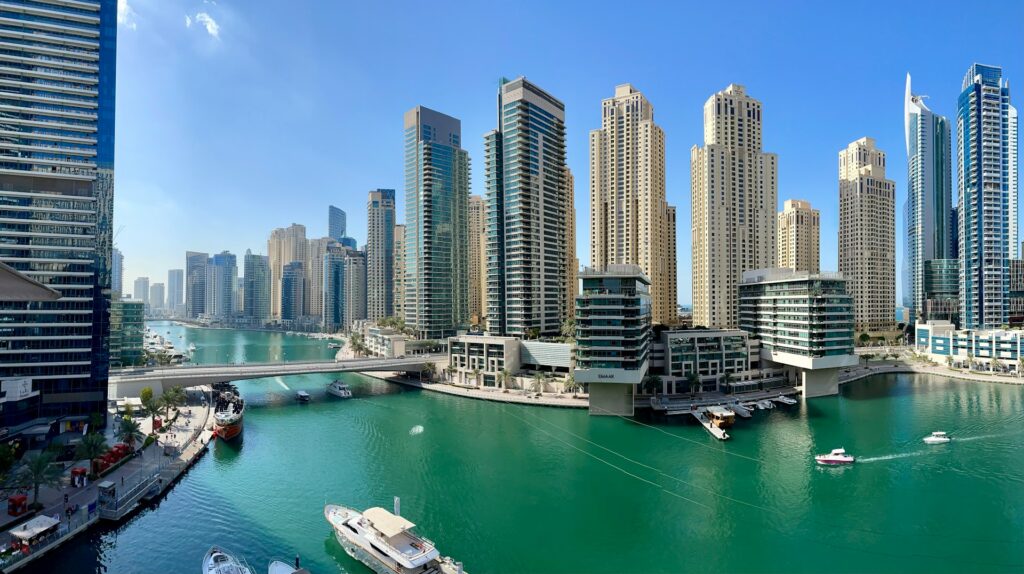
In summer, from June to August, temperatures can exceed 40°C (104°F), and the humidity is high. Lightweight, breathable fabrics like cotton and linen are essential to stay cool. Loose-fitting clothing is recommended to allow air circulation and avoid heat retention. Sunglasses, a wide-brimmed hat, and high-SPF sunscreen are crucial for sun protection. While shorts and tank tops may seem ideal, remember that Dubai is a conservative city, and modest clothing is appreciated, especially in public and religious places.
Fall
Fall, from September to November, brings slightly cooler temperatures, ranging from 25°C to 35°C (77°F to 95°F). Light and breathable clothing is still necessary. Long-sleeved shirts and pants made of light fabrics are advisable for evenings when it cools down. This season is more comfortable for outdoor activities, so pack accordingly.
Winter
Winter in Dubai, from December to February, is mild and pleasant, with temperatures between 14°C and 25°C (57°F to 77°F). A light jacket or sweater might be needed for cooler mornings and evenings. Daytime attire can still be light and comfortable, but layers are useful for varying temperatures. This is also the best time for tourists, so packing versatile clothing for both warm days and cooler nights is beneficial.
Spring
Spring, from March to May, sees temperatures ranging from 20°C to 35°C (68°F to 95°F). Similar to fall, light and breathable clothing is recommended. As the season progresses, it starts to get warmer, so it’s advisable to wear light-colored clothes to reflect the sun’s heat. Layers can help accommodate the temperature fluctuations throughout the day.
In all seasons, it’s essential to respect Dubai’s cultural norms by dressing modestly, particularly in public areas and when visiting religious sites.
The Currency in Dubai
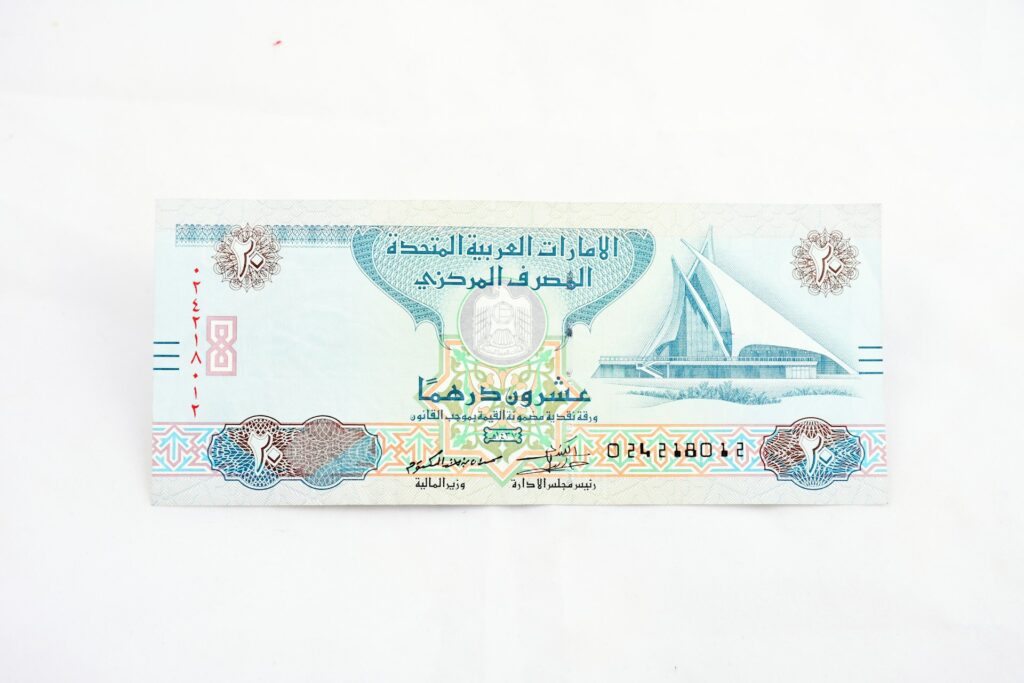
The official currency in Dubai is the United Arab Emirates Dirham (AED), commonly referred to as Dirham. It is subdivided into 100 fils. Banknotes are available in denominations of 5, 10, 20, 50, 100, 200, 500, and 1,000 dirhams, while coins come in 1, 25 fils, and 50 fils. The Dirham is a stable currency, pegged to the US dollar, which ensures consistency in exchange rates.
Which Currency Can Tourists Use in Dubai?
Tourists in Dubai use the UAE Dirham (AED) for all transactions. However, US dollars and other major currencies are widely accepted in hotels, larger stores, and tourist areas. For convenience and better exchange rates, it is recommended to use local currency for most purchases. Credit cards are also widely accepted.
Where to Exchange Money in Dubai?
Money can be exchanged at numerous places in Dubai, including banks, exchange bureaus, hotels, and even some large shopping malls. Exchange rates at banks and official exchange bureaus are typically more favorable compared to hotels. ATMs are widely available across the city and allow you to withdraw dirhams directly using your home bank card. Some exchange bureaus offer competitive rates and no commission fees, making them a good option for tourists.
Tips for Exchanging Money in Dubai
When exchanging money in Dubai, compare rates between different banks and exchange bureaus to find the best deal. Avoid exchanging large amounts at the airport as the rates there are usually less favorable. Keep small denominations for everyday transactions, as smaller vendors and taxi drivers might not have change for larger bills. It’s also a good idea to keep some of your exchanged receipts, as they may be required if you wish to convert any remaining dirhams back into your home currency before leaving Dubai.
The Language in Dubai
Dubai is a multicultural city with a diverse population, leading to a variety of languages spoken. The official language of Dubai is Arabic. It is used in government documents, legal proceedings, and official communication. However, due to the city’s international nature and significant expatriate community, English is widely spoken and understood. Most signs, menus, and public information are available in both Arabic and English.
In addition to Arabic and English, other languages such as Hindi, Urdu, Bengali, Tagalog, and Persian are also commonly heard due to the large number of residents from South Asia and the Philippines. This linguistic diversity makes it relatively easy for tourists and expatriates to navigate and communicate within the city. While learning a few basic Arabic phrases can be helpful and appreciated, English is sufficient for most daily interactions and transactions in Dubai.
The Necessary Documents and Emergency Contacts
Visa and Passport for Dubai
Travelers to Dubai need a valid passport and, depending on their nationality, a visa to enter the country. Citizens of many countries, including the United States, the United Kingdom, Canada, Australia, and the European Union, can obtain a visa on arrival for stays of up to 30 days. This visa can often be extended for an additional 30 days. Other nationalities may need to apply for a visa in advance through the UAE embassy or an online portal. It is essential to ensure your passport is valid for at least six months from the date of entry into Dubai.
Travel Insurance
You must have travel insurance with a minimum medical, evacuation and repatriation coverage of US$50,000 covering all applicable dates of travel with the Tour Operator. This insurance must cover personal injury and emergency medical expenses. On the first day of each Tour, a representative of the Tour Operator will verify that you have sufficient insurance in place. You are strongly recommended to extend your coverage to include cancellation, curtailment, and all other expenses that may arise as a result of loss, damage, injury, delay or inconvenience while traveling. You acknowledge that insurance coverage is not included in the cost of any Tour offered by the Tour Operator, and you are required to obtain separate coverage at an additional cost. It is your responsibility to ensure that you have sufficient coverage and comply with the terms of the applicable insurance plans. You are responsible for advising your insurer of the type of travel, destination(s) and activities included in your booking so that the insurer may provide appropriate coverage.
Travel Vaccines for Dubai
Before traveling to Dubai, it is recommended to be up to date on routine vaccines such as measles-mumps-rubella (MMR), diphtheria-tetanus-pertussis, varicella (chickenpox), polio, and your yearly flu shot. Additional vaccines may be advised depending on your travel history and health conditions. Hepatitis A and B vaccines are generally recommended as they can be contracted through contaminated food or water. Although Dubai is not a high-risk area for malaria, it’s wise to check for any travel advisories or health recommendations from your healthcare provider or travel clinic.
Essential Emergency Numbers in Dubai
When in Dubai, it’s crucial to know the key emergency contact numbers to ensure your safety and well-being:
- Police, 999
- Fire Department, 997
- Ambulance, 998
- General Inquiries, 18
Vegetarian, Vegan and Gluten-free Eating in Dubai
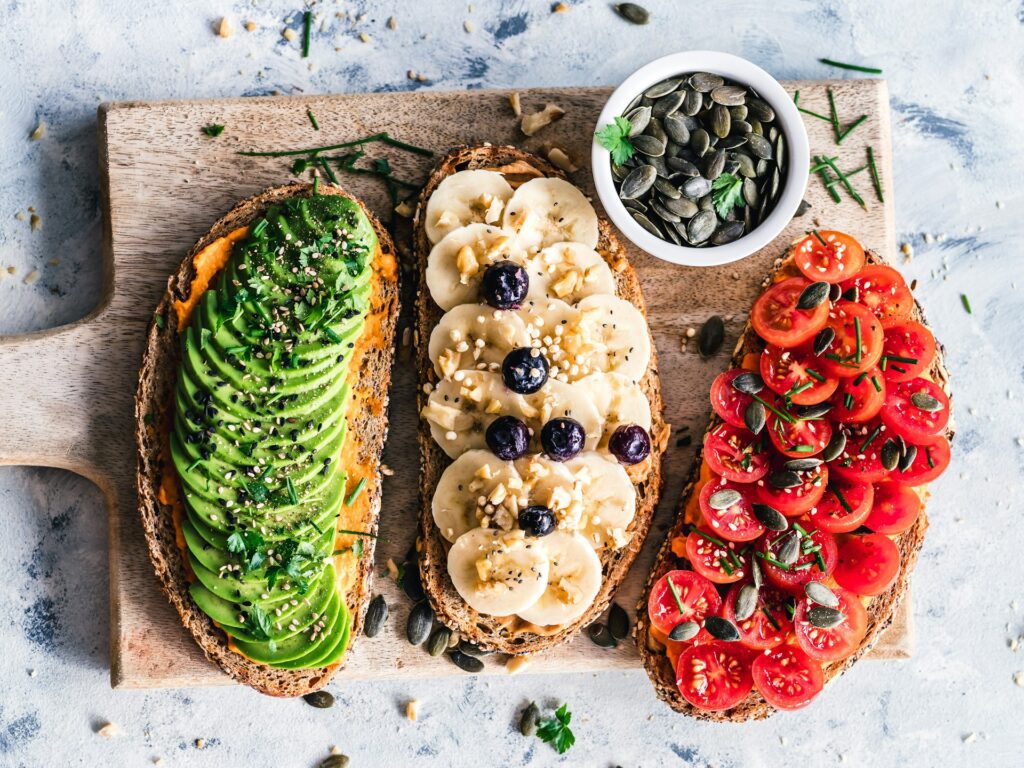
Dubai offers a plethora of dining options catering to vegetarian, vegan, and gluten-free diets, reflecting its cosmopolitan nature. For vegetarians, many traditional Middle Eastern dishes such as hummus, falafel, tabbouleh, and baba ghanoush are naturally vegetarian and widely available. Indian restaurants are abundant, offering a variety of vegetarian dishes like paneer tikka, chole bhature, and dosa. Additionally, Western-style cafes and international restaurants often have dedicated vegetarian menus or options.
Vegan dining in Dubai is also increasingly accessible. Many restaurants and cafes now offer vegan versions of traditional dishes, such as vegan shawarma or plant-based mezze platters. Specialty vegan restaurants are gaining popularity, providing a range of dishes made entirely from plant-based ingredients. Health-conscious eateries often feature smoothies, salads, and grain bowls that cater to vegan diets.
For those requiring gluten-free options, Dubai’s culinary scene is accommodating. Many international and health-focused restaurants provide gluten-free menus or clearly mark gluten-free items on their regular menus. Supermarkets also stock a variety of gluten-free products, ensuring that dietary needs can be met both in and out of restaurants. Whether you’re dining out or shopping for groceries, Dubai offers a wide range of choices for maintaining a gluten-free diet.
Do’s and Don’ts in Dubai
Do’s in Dubai
- Respect Local Customs: Familiarize yourself with and adhere to local customs and laws.
- Use Greetings: Greet people with “As-salamu alaykum” and respond with “Wa alaykum as-salam.”
- Bargain Respectfully: Haggling is common in markets, but do so politely and respectfully.
- Stay Hydrated: The climate can be extremely hot, so drink plenty of water.
- Use Public Transport: Dubai has an efficient public transportation system that is safe and convenient.
- Be Punctual: Arriving on time for appointments and meetings is appreciated.
- Take Off Your Shoes: Remove your shoes when entering someone’s home or certain places of worship.
Don’ts in Dubai
- Don’t Show PDA: Avoid public displays of affection, as they are frowned upon and can lead to legal issues.
- Don’t Drink in Public: Consumption of alcohol is restricted to licensed venues and it is illegal to drink in public.
- Don’t Use Offensive Language: Avoid swearing or making rude gestures, as these can result in fines or imprisonment.
- Don’t Photograph People Without Permission: Always ask for consent before taking pictures of people, especially women.
- Don’t Criticize the Government: Avoid making negative comments about the UAE government or the royal family.
- Don’t Eat in Public During Ramadan: During the holy month of Ramadan, do not eat, drink, or smoke in public during daylight hours.
- Don’t Engage in Loud Behavior: Keep noise levels down in public places to avoid disturbing others.
- Don’t Disrespect Religious Sites: When visiting mosques or other religious sites, dress appropriately and follow the rules.
What to Pack for Dubai
Travel Adapter for Dubai
When traveling to Dubai, you’ll need a power adapter to ensure your electronic devices can be charged. Dubai uses the Type G electrical outlet, which has three rectangular prongs in a triangular pattern. Make sure your adapter is compatible with this type to avoid any inconvenience.
Additionally, Dubai operates on a 230V supply voltage with a frequency of 50Hz. If your devices are not dual-voltage, you might also need a voltage converter to safely use them. It’s a good idea to check your device’s voltage requirements before your trip.
Wifi Access and Mobile Connectivity in Dubai
In Dubai, you’ll find Wi-Fi access readily available across various locations including hotels, cafes, shopping malls, and public areas. Most establishments offer free Wi-Fi, though you may need to register or provide your contact details to access it. This makes it relatively easy to stay connected while exploring the city.
For mobile connectivity, buying a local SIM card is a practical choice. Dubai’s major telecom providers, such as Du and Etisalat, offer prepaid SIM cards with various data plans that can be purchased at the airport or at local retail outlets. These SIM cards typically come with easy activation instructions and can provide you with reliable mobile internet throughout your visit. Be sure to check your device’s compatibility and ensure it supports the local network frequencies.









